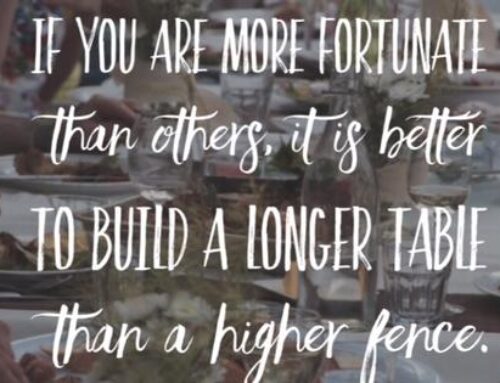How to Be Humble in the Trump Age
November 19, 2018
Categories: Humility
As a society, we seem more divided and polarized than ever. We put ourselves into groups, based on our cultural background, religion, or political worldview. This is normal—as human beings, we feel a deep need to be part of a group and community. As psychologist Jonathan Haidt argues, shared values bind us together in a way that other shared characteristics (e.g., a love for bowling) do not.
People Are Different
The problem is that not everyone believes the same thing I do 🙂
So, there are differences, and sometimes these differences show up in moral issues that are core to our worldview. For example, some people believe abortion is murder; others believe the right to choose to terminate a pregnancy is an inherent right of the mother. Some people believe we should welcome refugees with open arms; others believe we should close our borders. Some people believe Jesus is the only way to God; others believe in a different God (or that God doesn’t exist). How do we navigate these differences in a humble way, yet remain true to our integrity?
Honest About Limitations
I think it’s important to say upfront that humility doesn’t mean you have to change your mind. You can have a strong conviction and still be humble. Humility does mean, however, that you are honest about the limitations of your own perspective and worldview. Most of us aren’t honest about this. We research all the positives about our own perspective and all the negatives about the other perspective. We’re on the lookout for new evidence that confirms our own position. Holding our position with humility means we acknowledge and own the limitations of our own perspective, fully and honestly.
Open to Change
Humility also means we are open to changing our perspective if we encounter new evidence that warrants a change. Again, humility doesn’t mean that we will necessarily change our mind. But it does mean we are open to shifting our perspective. My experience is that if we engage all the available evidence with humility, our position may not change, but it sometimes softens, as we work to better understand the other person’s position.
Engage with Respect
Humility also means we engage in moral and political disagreements with respect. We treat the other person as a human being, rather than conflating the person with their position. We aim for conversations rather than conversions. We respect the fact that individuals have the right to their own opinion, no matter how much it differs from our own.
Hard to Be Humble
It’s hard to be humble when someone has a position that we find morally offensive. It’s not easy to acknowledge and own the limitations of our own perspective. It’s not easy to be open to changing our mind. It’s not easy to engage with respect, especially if the other person isn’t providing you the same courtesy. Sometimes we need to take a break, get off Twitter, and hang out with people who believe similarly to get the support we need, before we re-engage. That’s okay.
Moving Forward
However, if we’re going to move forward as a country and work together to solve our most difficult problems, we need to get back in the game. When engaging with people who believe differently, we need to move forward in humility.
Further Reading
If you’re interested in reading more about how to engage with people who believe differently with humility, check out my book on Cultural Humility.

Related Thoughts

Subscribe To My Newsletter
Join my mailing list to receive the latest blog posts.
Receive my e-book “The Mental Health Toolkit” for free when you subscribe.





